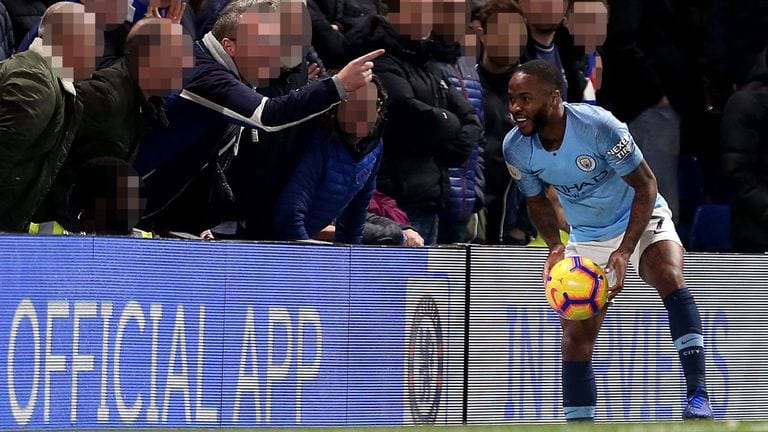
By Rob Kershaw
Since 1993, the football campaign “Kick it Out” has been working to try and limit, and ultimately extinguish the amount of racist incidents that happen in and around football pitches and stadiums; a movement which has been lauded and criticised in equal measure.
The plaudits have come mostly from the standpoint that racism has reduced over the years, which has been the general consensus over the years, but recent events have changed this perspective.
And this is where the criticism comes in: It has been widely suggested that Kick It Out has not done enough to tackle the racism in football that exists today, with a catalogue of incidents highlighting the fact that burying an issue under the carpet is not the answer, and the polemic issue that has plagued, not only clubs, but people globally, over a long period of time that stems back in history to the Slave Trade and black people being viciously abused and not permitted to have equal rights to white people, such as being allowed on public transport.
SterlingGate
The epidemic has been reignited by the recent attacks on Raheem Sterling by media outlets, as well as the racist abuse he suffered at the hands of Chelsea supporters on Saturday 8 December, following several articles criticising him for aspects of life off the pitch, including buying an expensive home for his mother and even going out for breakfast the morning after missing out on Young Player of the Year.
Sterling himself has started a new movement in which supporters are now receiving life bans for racist chants an actions at football stadiums, and Tabloids are now coming under fire for their part to play in “fuelling racism.”
This happened to the extent that may have called for a media blackout in football, essentially meaning that players would boycott talking to the media in protest of the seemingly discriminatory way that they treat and talk about black players. Tyrone Mings, a Bournemouth defender, refused an interview with TalkSport because of their coverage of the incident.


Barnes’ Battle and Aubameyang’s pain
Former Liverpool and England player John Barnes also weighed in, affirming to BBC Breakfast that the issue of racism in football has “not improved” and that it is the cause and not the symptom that needs to be addressed if this enormous problem is to be kerbed.
It is also John Barnes who was cited in a telling, and extremely concerning comparison. In February 1988, John Barnes was pictured back-heeling a banana that had been thrown at him by Everton fans in Liverpool’s 1 – 0 victory. This year, on the 2ndDecember during the North London derby, Arsenal’s Pierre Emerick Aubameyang was pictured having a banana thrown at him by Tottenham fans in Arsenal’s 4 – 2 win over their local rivals.
Thirty years apart, it is apparent that the problem has barely been slowed, let alone stopped, and that the only reason it has seemingly become less of an issue is that we, as people as well as football fans, have stopped talking about the issue because it has been so controversial, and so severe, that the sport has seen fit to bury the issue and refuse to address it; it has been an underlying problem all the while.
This was a big reason for the ire that was drawn when FIFA announced that it was axing its anti-racism task-force before the world cup in Russia, stating that its “purpose has been fulfilled”. As has become apparent, this statement is invalid for the reason that it is simply untrue, as racism still exists in the sport.
The Damming Reports
In fact, the issue has become worse. In 2016/17, Kick It Out received 469 reports of racism in football – an astonishing 67 more than the season previous, and the highest number of reports over a season that the campaign has ever received – a damming statistic indeed.
What this does however testify to is that the world of football has definitely become better at reporting racism, and there is less fear of the preverbal slap on the wrist for fabrication as a result of reporting incidents. These issues are now being seen as something that we can confidently relay to the relevant authorities, and this has at least been a step forward in terms of the ultimate goal of completely eradicating the extreme right-wing views that promote vicious inequality in a sport that should be helping lead the world the other way.
Continuing on that side of the coin, there are punishments being handed out and bans being applied. Burton defender Ben Turner was banned for five games in March 2017 following a racist incident against an opponent, five years after Liverpool’s Luis Suarez had been banned for racially abusing Manchester United’s Patrice Evra. The fans that abused Sterling are facing life bans, and Chelsea fans are also being investigated for racist chants during their Europa League clash with Vidi on the 13thDecember, just 5 days after the Sterling incident.
The conversation, which has also included Arsenal’s Ainsley Maitland-Niles revealing he was racially abused on a trip to Germany as a youngster, is something that absolutely needs to be continued in order for football to achieve its goal of extracting racism from pitches, be it premier league or children’s leagues, and the increased reports, although they suggest that racism is a much bigger problem than we perhaps thought, are also a sign of the first step from us towards tackling inequality in the game.
